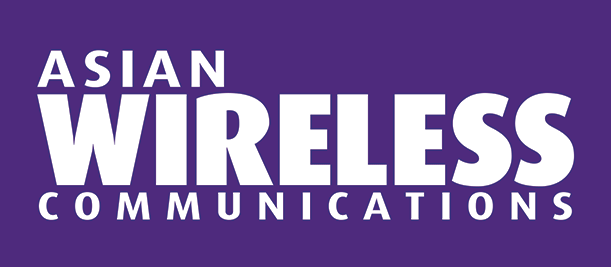11 April 2025

In line with rampant digitalisation, business messaging services are evolving to enable richer communications with customers, and in doing so, offer MNOs a way to win back clients and revenues from OTT players…
As businesses in South and Southeast Asia embrace digital transformation, the way they interact with customers is rapidly evolving. The shift from SMS to Rich Communication Services (RCS) is one of the most significant developments in mobile messaging, offering enterprises a richer, more interactive platform that enhances engagement, security, and monetisation opportunities.
Changing priorities

Matt Ekram, MEF
The transition from traditional SMS to RCS is being driven by businesses’ growing need for interactive, multimedia-rich customer experiences. Unlike SMS, which is limited to plain text, RCS enables verified sender profiles, high-quality images, videos, carousels, and interactive buttons, making it a much more engaging channel for enterprises.

Midhun Mohan, Greenads Global
“The shift is driven by the limitations of SMS, like plain text-only communication and lack of interactivity,” explains Midhun Mohan, Director - Growth & Partnership, GreenAds Global. “RCS offers richer media capabilities, verified sender information, and enhanced security, making it more appealing for businesses to deliver engaging and reliable messages.”

Inderpal Singh Mumick, Dotgo
“Businesses today need more than just text - they need rich, interactive experiences that drive engagement,” echoes Singh Mumick, CEO of Dotgo. “RCS delivers this through verified sender profiles, rich media capabilities, and interactive elements that achieve significantly higher conversion rates. We’re seeing significant ROI improvements compared to traditional SMS campaigns. Simply put, RCS brings messaging into the modern era while maintaining the reach and reliability that made SMS successful.”
In highly digitalised markets like India and Indonesia, RCS is becoming a necessity rather than an option. Matt Ekram, Programme Director for Asia at the Mobile Ecosystem Forum (MEF) reports that OTT messaging platforms like WhatsApp and WeChat have dominated the space, but Apple’s recent announcement to support RCS is a game-changer, particularly in markets with high iPhone penetration, such as Japan.

Messaging monetisation
For Asia’s MNOs, RCS presents a unique opportunity to reclaim business messaging revenue that has been eroded by OTT platforms.
“RCS provides a channel for businesses to send interactive, branded messages, driving higher engagement rates. This, in turn, creates significant revenue streams for MNOs through premium messaging fees,” outlines Mohan.
The impact has been substantial, says Mumick: “RCS is opening up new revenue streams for operators who have seen their messaging revenue eroded by OTT apps. We’re seeing operators not just recapturing lost business but expanding into new verticals that weren’t possible with SMS.”
Indeed, one of the biggest challenges MNOs have faced in recent years is competing with OTT messaging platforms like WhatsApp, Telegram, and WeChat. RCS, however, is now giving them a real chance to regain control of business messaging.
“As businesses seek richer, more secure messaging solutions, RCS is becoming the preferred choice for everything from e-commerce transactions and banking alerts to customer service interactions and appointment scheduling.”
“RCS puts operators back in the game with a compelling competitive edge,” notes Mumick. “The game-changer here is RCS’s cost structure - it offers the same rich, interactive features as OTT platforms but at a significantly lower cost point. This is particularly powerful because these features are available right in the user’s native messaging app, eliminating the need for additional app downloads or maintenance.”
Ekram acknowledges that while OTT apps still dominate certain regions, RCS has unique advantages that OTT platforms cannot replicate: “RCS provides network-level security, direct billing relationships with enterprises, and seamless cross-operator messaging. This makes it far more reliable for business-critical messaging, such as banking notifications and healthcare updates.”
“We’re seeing operators significantly strengthen their position in business messaging through this combination of accessibility and affordability,” adds Mumick. “Additionally, the platform’s built-in verification and security features help prevent fraud and spam, which protects both the operator’s network and their customers. This comprehensive package - lower costs, native integration, and enhanced security - is what makes RCS such a compelling proposition for operators looking to grow their messaging business.”
Beyond monetisation, RCS also enhances customer retention for MNOs.
Ekram reports that “RCS is helping reduce business customer churn through better engagement tools and analytics for businesses, seamless integration with existing business systems, and enhanced security and verification features.”
“RCS creates stickiness through its rich features and proven ROI. When businesses see engagement rates increase by 2-3x and conversion rates improve significantly, they’re more likely to upgrade SMS to RCS,” says Mumick. “The interactive capabilities also help businesses build stronger relationships with their customers all at a cost little higher than SMS, making RCS an essential part of their communication strategy.”
“Businesses are less likely to switch providers when their needs are being met with innovative solutions,” adds Mohan.
Maximising investment
While RCS present substantial opportunities for MNOs to deepen their engagement with customers and enhance service offerings, successful implementation of this technology requires a well-thought-out and strategic approach.
MNOs must fundamentally shift their perception of RCS, treating it not merely as an upgraded version of SMS, but rather as a transformative platform that has the potential to revolutionise customer communication and interaction.
“Choosing the right RCS partner is critical,” advises Mumick. “Operators need a provider with proven expertise, technical scalability, and strong industry relationships. The ability to handle complex integrations while offering robust analytics and security features is what makes an RCS partner valuable.”
Ekram agrees, stating that MNOs need to align their RCS strategy with local market needs: “for instance, India’s enterprise market is rapidly adopting RCS for e-commerce and financial services, while Indonesia is seeing growth in retail and small business applications. Understanding these regional differences is key to successful adoption.”
Mohan recommends that MNOs consider partnering with a robust RCS platform provider that not only delivers technological solutions but also plays a critical role in educating business customers on the benefits of RCS. This education is pivotal, as it empowers enterprises to leverage RCS capabilities effectively for their marketing and customer engagement strategies.
MNOs should also commit to continuously updating RCS features in response to evolving market trends and user expectations: “by staying attuned to the latest developments in the industry, MNOs can refine their messaging strategies and ensure that they remain relevant and competitive in a rapidly changing landscape,” continues Mohan. “Additionally, leveraging analytics to gather insights on customer interactions can provide invaluable information to fine-tune RCS campaigns, optimise engagement tactics, and ultimately enhance overall performance.”
MNOs would be wise look for partners who offer end-to-end solutions, from technical integration to business development support, adds Mumick. Key evaluation criteria should include:
- The partner’s global presence and experience with diverse markets
- Existing relationships with brands and aggregators
- Ability to handle complex integrations
- Robust analytics and reporting tools
- Track record of successful implementations with major operators
- Innovation capabilities and adherence to evolving RCS standards
“This comprehensive package - lower costs, native integration, and enhanced security - is what makes RCS such a compelling proposition for operators looking to grow their messaging business.”
“Having a partner with established expertise helps operators avoid common implementation pitfalls and accelerates their time to market for RCS services. The ideal partner should not only provide the technical infrastructure but also help operators build their RCS ecosystem and maximise revenue potential from their RCS investment,” says Mumick.
Is RCS the future of business messaging?
The adoption of RCS is accelerating, and industry leaders believe it is set to become the dominant platform for business messaging in South and Southeast Asia. According to Google, RCS has already reached over 1 billion monthly active users, and with Apple’s recent support, that number is projected to grow to 3 billion by the end of the year.
“RCS is not just the future — it’s already becoming the standard in business messaging,” says Mumick. “From retail brands using RCS for interactive product showcases to banks leveraging it for secure transactions, the versatility of RCS makes it an essential part of modern customer engagement strategies.”
Mohan adds that businesses are increasingly recognising RCS as a more secure and measurable alternative to traditional SMS and OTT platforms: “RCS is redefining the way businesses interact with customers by merging the simplicity of SMS with the interactive capabilities of apps. Its adoption is expected to grow as more MNOs and businesses realise its potential.”
However, Ekram believes RCS will coexist with other messaging platforms rather than completely replacing them.
“While RCS adoption is strong in India, Japan and Indonesia, some markets may continue to use multi-channel strategies that combine SMS, OTT apps, and RCS based on consumer preferences. While RCS offers significant advantages, it will be one component of a multi-channel messaging strategy rather than a complete replacement for other platforms,” shares Ekram.
“Looking at global adoption, emerging markets like India, Brazil, and Mexico are showing strong growth in RCS usage. Major operators worldwide are rolling out RCS support, and with RCS now coming pre-installed on Android devices, the adoption barriers are minimal,” notes Mumick. “As we look ahead, RCS is positioned to become the dominant platform for business messaging, offering the perfect combination of reach, rich features, security, and measurable results. It’s not just an evolution of SMS - it’s a complete reimagining of business messaging for the modern era.”
The momentum behind RCS is undeniable, with MNOs, enterprises, and technology providers aligning to accelerate its adoption. As businesses seek richer, more secure messaging solutions, RCS is becoming the preferred choice for everything from e-commerce transactions and banking alerts to customer service interactions and appointment scheduling. However, success will depend on strategic implementation, strong technology partnerships, and ongoing education for enterprises.
As South and Southeast Asia continue on the path of rapid digital transformation, one thing is clear: RCS is no longer just an emerging technology — it is shaping the future of business messaging in the region.






